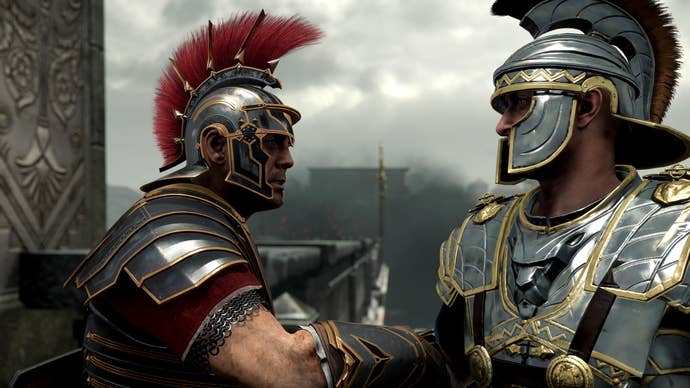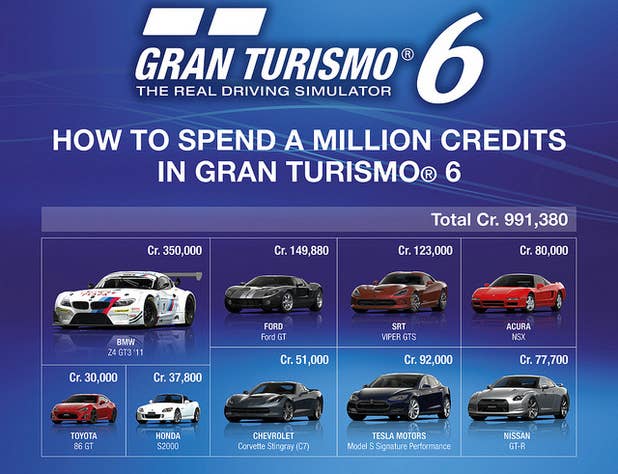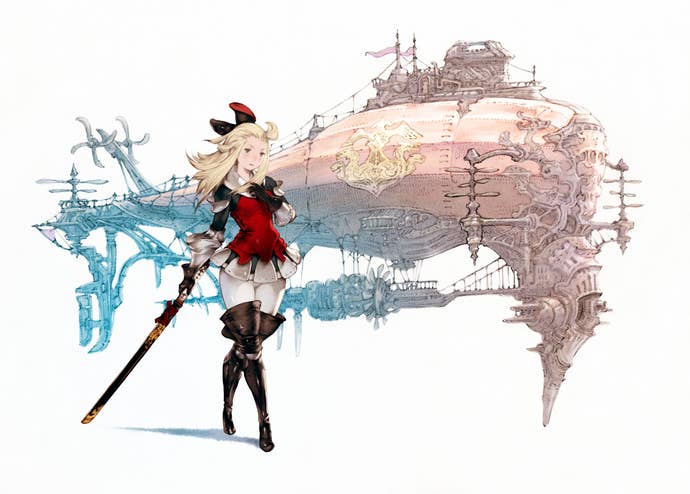What Happens When Free-to-Play Games Aren't Free?
Eurogamer's Martin Robinson argues Microsoft's misappropriation of free-to-play mechanics is at the head of a broader problem.
This article first appeared on USgamer, a partner publication of VG247. Some content, such as this article, has been migrated to VG247 for posterity after USgamer's closure - but it has not been edited or further vetted by the VG247 team.
Rewind some eight years and you'll remember a time when DLC was a dirty word -- when it symbolised a certain arrogance and greed typified in the shining armor that could sit on The Elder Scrolls: Oblivion's horses, for a price.
It took the best part of a generation for the concept of DLC to settle in, and for it to become a respected, at times respectable way to extend the lifespan of a game.
More recently there's been another dirty phrase often recounted with curled lips: free-to-play. For a long while it's been a byword for fleecing players and questionable business ethics masquerading as game design -- but as the success of the likes of League of Legends, Planetside 2, World of Tanks and the retooling of Team Fortress 2 suggest, it's a system that can work for player and developer alike.
So you can excuse Microsoft for wanting to get in on the action, even if it was a little late to the party. The Xbox 360 historically shut out free-to-play games, only for an about-turn at E3 earlier this year when it was announced that World of Tanks would be coming to the console, and with the announcement of a new free-to-play Killer Instinct, it was a model that the Xbox One would embrace with open arms.

A little too open, it turns out. There are aspects of free-to-play design in the bulk of the Xbox One's launch titles: Ryse has microtransactions that aid progress in its multiplayer mode, while Crimson Dragon's single-player path can also be given a little helping hand by buying in-game currency with real-world money. Elsewhere, Forza Motorsport 5 allows you to boost the rate at which you gain XP for a little extra cost, or to spend money to fast-track your way to a higher end car. They're all systems proven in the world of free-to-play, but there's a problem: none of these games are free.
It's an obvious distinction, but an important one -- and something that seems to have completely escaped Microsoft. There's another distinction worth making: this isn't extra content that's being offered at a price, but rather a consumable that tinkers with a game's pre-existing systems. No-one actively enjoys the base free-to-play mechanic of parting with money to progress, or at least no-one's going to mistake it for good game design. It's an appendage you put up with for a simple reason: the games you're playing that employ these tactics are free, and they're systems that certainly have no place in games that, at $60+, already represent a sizeable investment.
Inspiration has been taken from FIFA Ultimate Team, which is fair enough: it's one of the big business successes of the last few years, as well as a feature with a passionate, dedicated fanbase (you don't want to know how much time and money Eurogamer's Tom Bramwell has dedicated to it in recent years). EA, though, has been smart to compartmentalize the feature, separating it out from the main game -- and when you put money in, you get something tangible out. And if, like me, you just want to pick up the new FIFA to play with friends and take your team through a couple of seasons, that's still perfectly possible.

Microsoft's own argument goes that these microtransactions are optional, and an extension of player choice. All of which rings a little hollow: purchasing them certainly is, but for more traditional, sensible people, partaking in a game that's wilfully broken in order to allow for their inclusion shouldn't have to be. In Crimson Dragon, the microtransactions are unobtrusive, and are even being dialled back a little for launch -- but their very existence at the heart of a $20 game rankles. Surely the choice should be on the other side: it's up to publishers to decide whether to make a better, more accessible game, or whether to just make a desperate lunge for more money.
In Forza Motorsport 5, the problem runs deeper -- the economy that's the backbone of the series has been altered, and it's too easy to come to the conclusion the changes have been made to make way for microtransactions. Unlike in older Forza games, cars aren't offered as rewards for success: instead, the only option is to buy them in a grind that can be augmented by pumping in real-world money.
It's a problem exacerbated by Forza Motorsport 5's drip-feed of cars as part of a $50 season pass, a number of which are being reintroduced from earlier games. And even when you've bought them as DLC, in order to own them fully in the game they have to be purchased using in-game currency -- or, of course, by pumping in a little extra money of your own. The game's creative director, Dan Greenawalt -- a smart and passionate man whom I suspect isn't behind these decisions -- admitted the season pass hasn't been wholly popular, but that people are enjoying it and redeeming it, and that it's keeping them playing the game for another 6 months. He compared it in some small way to a gym membership -- but the problem with Forza 5's membership is that having already bought the gym and paid a subscription, you're then asked to pay individually for each piece of equipment within.
In this grim vision, everything's for sale. It's blandly reminiscent of the excessively commodified dystopia of Philip K. Dick's Ubik, where everyday actions become a monetary transaction: where you rent your apartment but have to pay a little more to access your fridge, or find yourself scraping pennies together just to open your front door.

It's sad to see Forza's considered craft replaced with dark economics -- after all, Turn 10's series was one of the best at penning a link between driving games and RPGs. In a good RPG, there's always pleasure in power levelling and submerging yourself in the stream of XP and progression. Designing a well-balanced, well-paced levelling system is a fine art, and as soon you introduce microtransactions, that's corrupted. Would working through Final Fantasy 7's world be as rewarding if there was the option to spend your way through its intricately designed levelling system?
Sadly that's not so much a hypothetical question: rumours preceding the PC re-release of Final Fantasy 7 suggesting it'd introduce microtransactions that could boost your XP were all too easy to believe, even if they didn't eventually come to pass. The follow-up to Square's 3DS RPG Bravely Default that's being localized for release later this year goes there, though, allowing you to spend to speed up your progression. It's a miserable addition.
And it doesn't stop there. The grind of Gran Turismo already looks to be broken by the inclusion, for the first time in the series, of microtransactions in GT6, and it's a trend that's set to continue well into the next generation of games. It's one that will carry on, as well, until companies realise it's a disrespectful, dishonest practice, and until players stop supporting it by pouring money into the bottomless pit it creates. Free-to-play's not the problem, and it's a concept that will, in time, enrich the future of gaming just as it broadens its audience. Its misappropriation by cynical publishers must be stopped, though, before it turns those same people away with their shameless greed.
